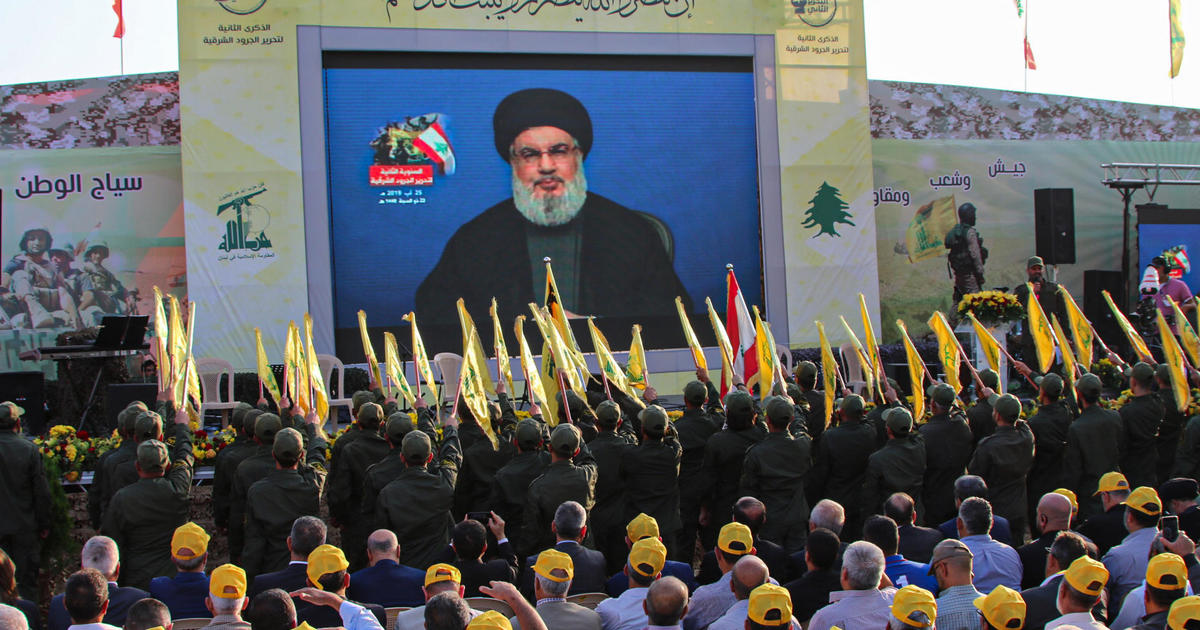Hassan Nasrallah, the leader of Hezbollah, a powerful Shia militant group in Lebanon, was killed on Friday in an Israeli airstrike. Nasrallah, 64, died along with several other top Hezbollah commanders, including Ali Karki, the commander of Hezbollah’s southern front. The strike targeted the “central headquarters” of the group in Beirut. The Israeli Defense Forces (IDF) confirmed the death of Nasrallah and the strike, while Hezbollah also confirmed Nasrallah’s death, saying he “has joined his fellow martyrs.” Two US officials confirmed his death to CBS News.
Nasrallah’s Rise to Power and Hezbollah’s Impact on the Region
Born in Beirut in 1960, Nasrallah joined a Shia militia called the Amal Movement during Lebanon’s civil war. This movement eventually evolved into Hezbollah, meaning “Party of God,” with strong ties to Iran. The group has been supported by Iran financially and militarily since its inception. Nasrallah became Hezbollah’s secretary general in 1992 following the assassination of his predecessor.
Hezbollah’s Global Activities and the Nasrallah Era
Under Nasrallah’s leadership, Hezbollah became a prominent force in the Middle East. The group’s military wing has been involved in various acts of terrorism around the world, including the bombing of U.S. embassy buildings in the 1980s.
Hezbollah’s Rise to Power in Lebanon
Despite facing a US designation as a terrorist organization in 1997, Hezbollah’s influence grew. Nasrallah spearheaded Hezbollah’s involvement in both the 2006 war with Israel and the Syrian Civil War. During the Syrian conflict, Hezbollah fighters sided with Syrian President Bashar Assad, further solidifying their position in the region. This also contributed to the organization’s increasing political influence in Lebanon. Nasrallah transformed Hezbollah into a formidable political force, expanding its presence and social welfare programs. The group’s political wing now holds seats in Lebanon’s parliament.
The Legacy of Hassan Nasrallah and the Future of Hezbollah
The death of Nasrallah, a charismatic and widely respected leader, leaves a significant void in Hezbollah. Though his public appearances had become rarer, Nasrallah’s influence remained powerful, thanks to his strategic leadership and the organization’s widespread reach.
The Impact of Nasrallah’s Absence
Nasrallah’s absence poses many questions about the future of Hezbollah. Some speculate that the organization’s influence could decline without his guiding hand, while others believe that Hezbollah’s already robust military infrastructure and entrenched political base will help the group adapt to the loss. While it remains uncertain how the organization will respond to the death of its leader, Nasrallah’s impact on the Middle East will likely be felt for years to come.
The Future of Hezbollah in Lebanon and the Region
Hezbollah’s commitment to challenging Israel’s influence in the region will likely continue despite Nasrallah’s death. The organization’s role in the ongoing conflicts in Syria and Lebanon will also be influenced by his absence. Nasrallah’s replacement will inherit a legacy of both powerful influence and the organization’s history of conflict, presenting a challenging new chapter for the militant group and its influence in the region.
Takeaways
- Hassan Nasrallah was killed on Friday in an Israeli airstrike targeting his “central headquarters” in Beirut.
- Nasrallah was a prominent figure in the Middle East, leading Hezbollah for over 30 years and solidifying its influence across Lebanon and the region.
- The impact of his death remains unclear, but it is likely to significantly alter Hezbollah’s internal and external strategies.
- Nasrallah’s influence and leadership, however, had a long-lasting impact on the Middle East that will not be forgotten.




